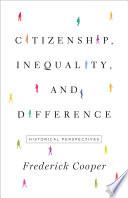
Pengantar Ilmu Ekonomi Mikro
Buku yang berjudul Pengantar Ilmu Ekonomi Mikro berisi teori dasar ekonomi mikro. Buku ini disusun agar mahasiswa lebih mudah dalam mempelajari mata kuliah Ekonomi Mikro. Mata kuliah ini adalah mata kuliah dasar yang diajarkan pada semester pertama sehingga tidak memiliki prasyarat khusus. Buku ini terdiri dari 15 bab yang membahas topik-topik dasar ekonomi mikro secara komprehensif. Selain itu, buku ini dimulai dari konsep dasar teori ekonomi, penjelasan ilmu ekonomi dari sisi konsumen, penjelasan ilmu ekonomi dari sisi produsen serta konsep ekonomi kesejahteraan.
- ISBN 13 : 6230106574
- ISBN 10 : 9786230106576
- Judul : Pengantar Ilmu Ekonomi Mikro
- Pengarang : Dr. Busra, S.E., M.Si, Yuli Anisah, S.E., M.M., Zulkarnaini, S.E., M.Si., Ak., CA, S.E., M.Si, Yuli Anisah, S.E., M.M., Zulkarnaini, S.E., M.Si., Ak., CA,
- Kategori : Business & Economics
- Penerbit : Penerbit Andi
- Bahasa : id
- Halaman : 226
- Google Book : https://play.google.com/store/books/details?id=ubECEAAAQBAJ&source=gbs_api
-
Ketersediaan :
Buku yang berjudul Pengantar Ilmu Ekonomi Mikro berisi teori dasar ekonomi mikro.









